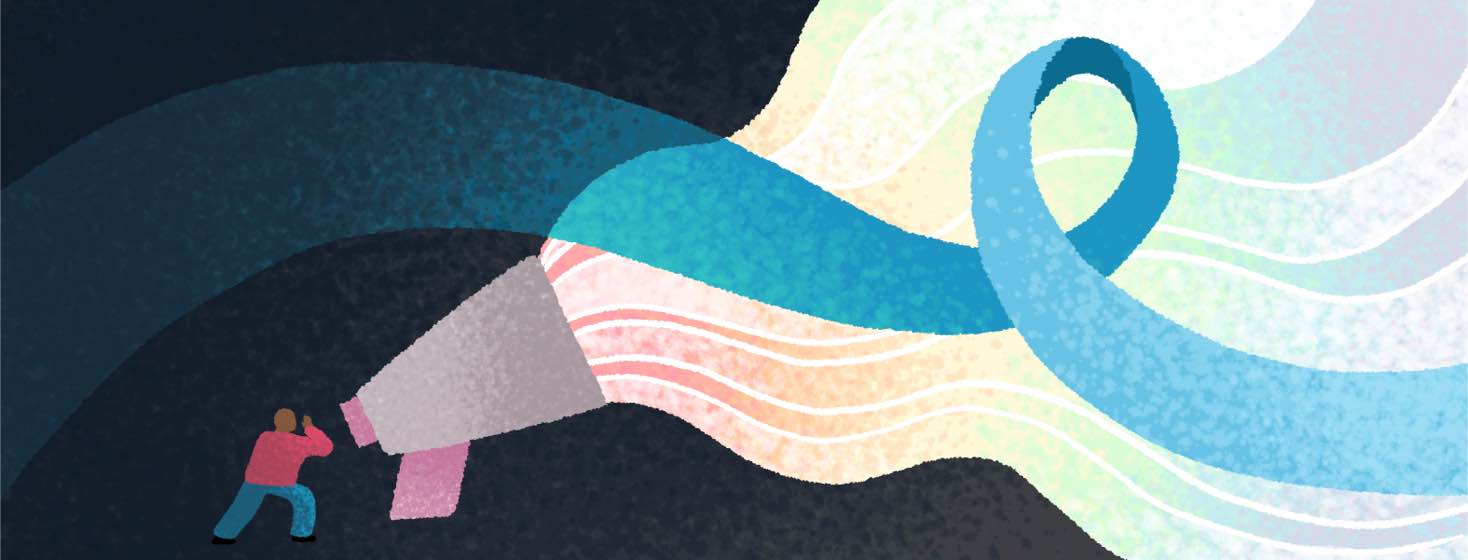Community Spotlight: Simon and Bill – Part 2
Bill West was diagnosed with prostate cancer in 2010. His husband, Simon Rosser, was diagnosed in 2016. They talk about what they learned from their diagnoses and how they've supported each other, and highlight the need for more resources and awareness of gay and bisexual people with prostate cancer. Read Part 1.
Sexuality and identity
What do you wish doctors understood about the effects of prostate cancer on gay and bisexual men?
Bill: Sexuality and identity are the same for gay men. Treatments that affect sexuality also touch on core identity issues. Failure to recognize that dismisses the essential personhood of the patient. It’s hard to take advice from someone you perceive as demeaning, or who is only interested in treating the cancer, not the person.
Simon: I get the impression that many specialists think that if they do the best surgery or provide the best radiation, they’ve done their job. I wish specialists received better training in how to talk with patients, especially about the sexual and urinary effects, and to be more curious about the effects of treatment on their patients’ lives. Gay and bisexual patients can teach specialists a lot about treatment if only the provider would ask.
A major study for gay and bisexual men
Simon, you’ve led a study on gay and bisexual men with prostate cancer. It's the first comprehensive rehabilitation program dedicated to this segment of the prostate cancer community. Tell us about it.
Simon: First, we conducted a study of 193 gay and bisexual prostate cancer patients and now have an even larger one with over 400 men in progress. We’ve learned a lot. Gay and bisexual patients are more likely to be single and to have less support when they go through treatment. Indeed, a lot of us go through treatment alone.
Almost all gay and bisexual patients have a set of questions about the effects of treatment on gay sex that almost never get asked or answered. Even though we receive the same diagnosis and treatment as straight patients, we end up with poorer mental health, urinary and bowel function outcomes. That suggests there’s something wrong with how treatment is being delivered to gay and bisexual patients. Indeed, almost half of our participants report experiences of discrimination when going through treatment. That’s a serious concern. On the plus side, sexual minority patients have better sexual outcomes than straight patients. So, if we can discover what gay and bisexual patients are doing right, we may be able to improve sexual outcomes for straight patients as well.
Our randomized controlled trial testing a comprehensive approach to sexual and urinary rehabilitation tailored to sexual minority men is still in progress. The study is designed to test if rehabilitation works for gay and bisexual men, as well as the first protocols to treat some sexual aspects like painful receptive anal sex, and problems of urine during sex that our earlier study identified as common problems for gay and bisexual patients.
Being a patient advocate
Bill, you work as a patient advocate on Simon’s studies. Can you explain what that involves and what it means to you?
Bill: In 2018, the Journal of Internal Medicine published a study that determined that doctors interrupt patients after eleven seconds of listening. Patients will tell their doctors everything they need to know about them as an individual if the doctor simply shuts up and listens. Being a patient advocate means making sure questions and health messages in our study first communicate our openness to understanding and our willingness to learn from our participants. What it means to me is what every healthcare person learns: patients are far more interesting than just treating us as a disease process.
Increasing awareness
How can we all help increase awareness and address the needs of gay and bisexual men in the prostate cancer community?
Bill: Sexual minority patients face a double stigma. In the gay community, we don’t talk about prostate cancer, and in the prostate cancer community, we pretend that gay and bisexual patients don’t exist. Many clinics and providers still do not even ask about sexual orientation, so the system keeps us totally invisible.
Simon: The most important information for any gay or bisexual man at diagnosis: Given the sexual effects of treatment, I believe it’s really important to be out to a specialist and to ask the questions that most gay patients have. For example, I think it’s critical if a person enjoys receptive anal sex to tell the provider this information, since radiated bowel can prevent any receptive sex for the rest of your life. If a provider reacts negatively to knowing a person's sexual orientation or to being asked sexual questions, I would leave and get another specialist.
The gay and bisexual men who are being diagnosed now are also amazing survivors. Almost all of us experienced significant discrimination growing up, and many of us were illegal. We fought for our rights, we endured the AIDS epidemic, invented safe sex and tailored HIV prevention, and we demanded better treatments, ultimately resulting in HIV becoming a chronic treatable disease. Now, we have to apply that same energy and activism to advancing better treatment and treatment experience for prostate cancer patients as well.

Join the conversation